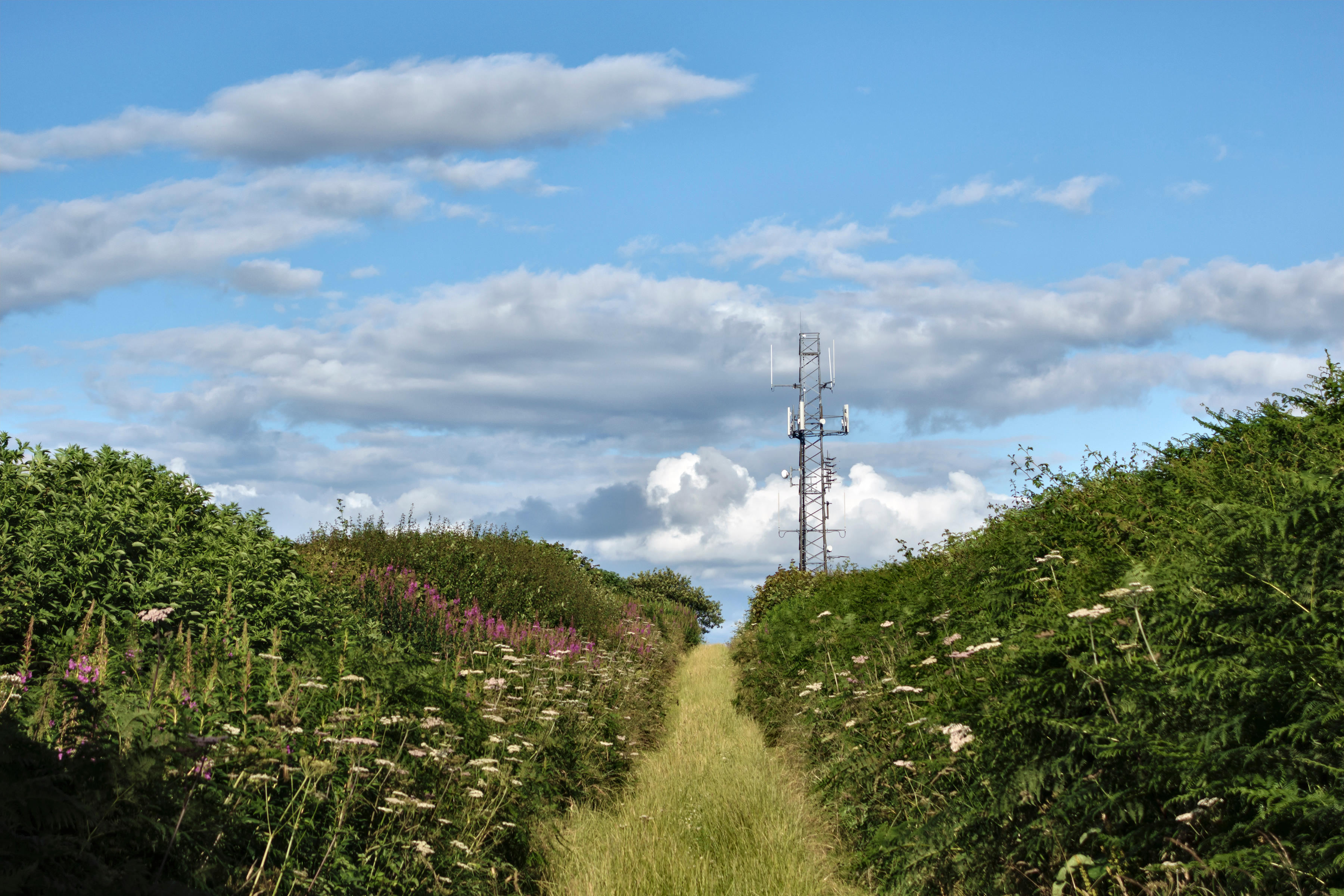Countryside to get 5G mobile connectivity ... and taller phone masts
The Government has announced a competition to pilot 5g applications in ten rural locations, alongside plans to relax planning rules on mobile phone masts in the countryside


Exquisite houses, the beauty of Nature, and how to get the most from your life, straight to your inbox.
You are now subscribed
Your newsletter sign-up was successful
Rural organisations have broadly welcomed the Government’s plans to improve mobile connectivity in the countryside and make the most of 5G technology.
Last week, Digital Secretary Nicky Morgan launched a £30-million competition — the Rural Connected Communities programme — to bring 5G technology to rural Britain. Up to 10 locations will see trials of 5G applications in a bid to stimulate investment in the technology and support innovation.
A scheme already in place in Orkney uses 5G to check salmon fisheries and boost wind-farm efficiency of wind farms, while another, in Shropshire, helps farmers target crop-spraying and analyse soil quality.
'The British countryside has always been a hotbed of pioneering industries and we’re making sure our rural communities aren’t left behind in the digital age,' said Ms Morgan. 'We’re investing millions so the whole country can grasp the opportunities and economic benefits of next generation 5G technology.'
Alongside this, the Government has also launched a consultation to simplify planning rules to help bring better mobile coverage to the countryside.
‘We’re committed to delivering the homes people across the country need, and that includes delivering the right infrastructure such as broadband connectivity and good mobile coverage,’ said the Minister of State for Housing and Planning, Esther McVey. ‘There is nothing more frustrating than moving into your new home to find signal is poor.
‘That’s why we are proposing to simplify planning rules for installing the latest mobile technology – helping to extend coverage and banish more of those signal blackspots, particularly for those living in rural areas.’
Exquisite houses, the beauty of Nature, and how to get the most from your life, straight to your inbox.
The Country Land and Business Association (CLA), which has long been campaigning for better mobile connectivity, was encouraged by the announcement. ‘The vast potential of the rural economy will only be fulfilled when everyone in the countryside has full mobile connectivity and we welcome DCMS’s intent to deliver the Prime Minister’s promise of internet access for all,’ said the CLA’s Deputy President, Mark Bridgeman.
‘The current situation, where only 67% of the country can access a decent signal, is unacceptable and the Government is right to focus on planning reform as a means to removing current barriers.’
It’s a view echoed by the Campaign to Protect Rural England. ‘It is fantastic that rural communities, many of whom have been cut off and left behind in terms of modern communications, will be now be able to access fast and reliable mobile phone signal,’ said the charity’s Head of Land Use and Planning, Matt Thomson.
‘The new 5G network will transform the lives of those living in our market towns and villages, bringing new opportunities and economic growth. Better mobile connectivity can also contribute to addressing the climate emergency by reducing the need to travel, particularly for businesses.’
Among the potential planning changes are proposals to relax current height restrictions for mobile phone masts and to allow existing ground-based masts ‘to be strengthened without prior approval to enable sites to be upgraded for 5G.’
Although this means that taller, bigger masts may dot the countryside, it should be offset by a plan to promote mast sharing among operators, thus reducing the need for new infrastructure.
‘We’re pleased to see that a central plank of the new proposals is that mobile phone operators must work together to provide joint infrastructure, which will reduce the potential for duplicate masts and that there will be consultation on the new proposals,’ noted Mr Thomson.
But while the Government’s plans are a big step forward in getting better mobile connectivity for the countryside, the CLA’s Mr Bridgeman believes that a crucial element is still missing. ‘There must also be a balance between the interests of landowners and mobile operators, who continue to deny fair payments to site providers.’

Top countryside apps
From DIY to tracking down the family dog, there’s an app for everything when you're out and about
Carla must be the only Italian that finds the English weather more congenial than her native country’s sunshine. An antique herself, she became Country Life’s Arts & Antiques editor in 2023 having previously covered, as a freelance journalist, heritage, conservation, history and property stories, for which she won a couple of awards. Her musical taste has never evolved past Puccini and she spends most of her time immersed in any century before the 20th.
